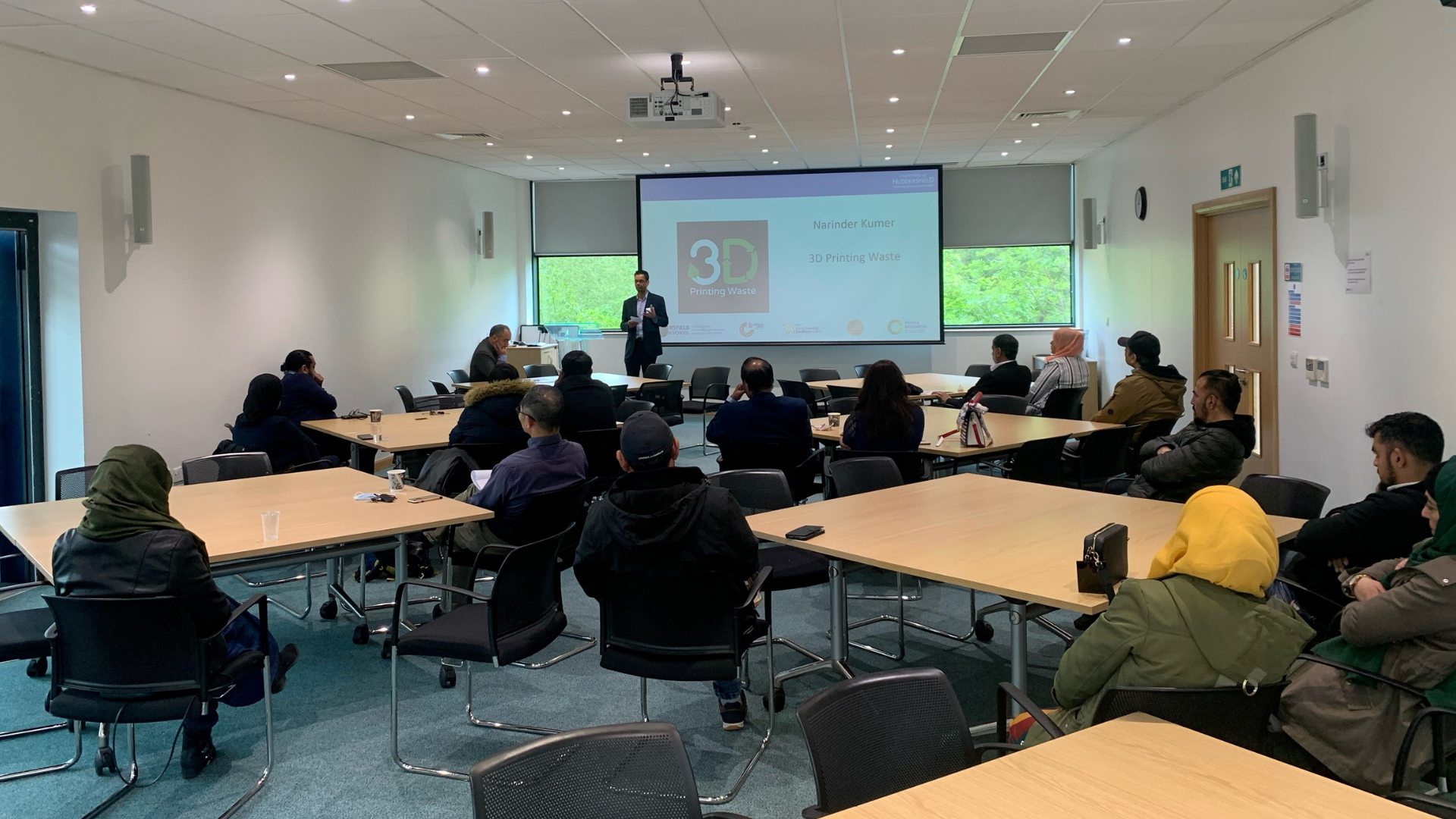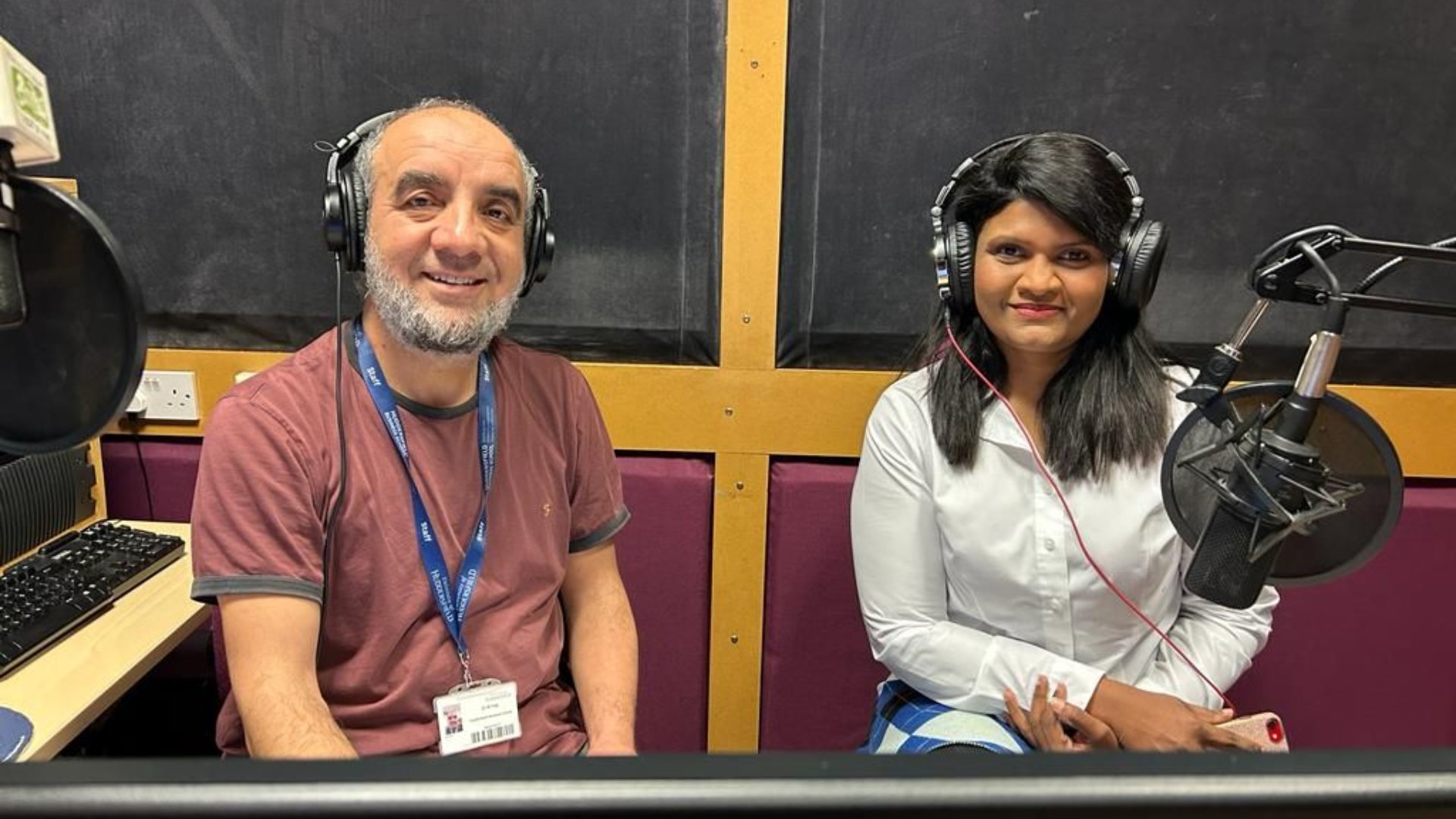Breaking down the barriers to research with Muhibul Haq

Muhibul Haq
Senior Lecturer in International Strategy, Sustainability, and Entrepreneurship
Hi, I’m Muhibul Haq and I am from Gilgit/Baltistan region of Pakistan. I have worked at Huddersfield Business School since 2018.
Here at Huddersfield Business School research, enterprise, knowledge exchange and consultancy are at the forefront of our business portfolio, and we have developed in-depth insights across many different sectors and industries. Our ‘Breaking down the barriers to research’ series explores research from our academics and its impact on local businesses and the local economy.
In this blog you will hear from Muhibul Haq - Senior Lecturer in International Strategy, Sustainability, and Entrepreneurship.
Please introduce yourself
I’m Muhibul Haq. I’m currently based in Bradford, but I’m originally from the Gilgit/Baltistan region of Pakistan. Before I came to the UK in 2001, I worked in a variety of international development organisations such as The United Nations Development Programme, The International Fund for Agricultural Development, and The Aga Khan Development Network. As a Chevening Scholar, I studied MSc in Project Planning and Management at University of Bradford. Following this, I spent over 16 years as a Human Resource and IT Manager for Bombay Stores Group – a family business. In 2018, I completed my PhD in Small Business Management and joined Huddersfield Business School teaching human resource management. Over time, I realised my research aligned more with entrepreneurship and microbusinesses. Therefore, I switched my teaching largely from HRM to Entrepreneurship and Strategy, although I am still teaching some HRM modules.
Describe your research area in five words
Performance of microbusinesses
Can you tell us about some of the projects you're working on and their goals?
I’m commissioned as the primary investigator to “Conceptualizing Informality as a Source of Sustainable Success and Competitive Advantage in Regional Ethnic Minority Microbusinesses” accepted by the BA/Leverhulme Small Research grant scheme. Micro businesses rarely have formal rules and procedures in place. Everything is based on informal practises, informality, and flexibility. So, a PhD student of mine and I have collected data during COVID-19 and analysed it. I’m now writing an article with a number of scholars from around the world and I’ll be presenting this draft in June at an international conference for small businesses in Geneva, Switzerland.
Another project I’m currently working on is an internally funded research project with some other colleagues from Huddersfield Business School. We are exploring “How COVID-19 Crises has Impacted Microbusiness Survivability and Success in Yorkshire and Lancashire, and What Lessons can be Learned?”. This research is very interesting because the common logic dictates that any pandemic or crisis will affect business performance negatively. However, we found that it contributed positively to business performance for most of our participants due to personal commitment and personal perseverance.
Has your expertise had a positive impact/influence on businesses and/or the local economy and how?
I’ve carried out research on why South Asian people are more likely to become entrepreneurs. My research was featured in print and local media in an article titled ‘50% of all start-ups in Bradford set up by South Asian people’. It is a great pleasure to know that my research is being used by the wider society and is having a societal impact.
I also host a radio programme titled "The Contribution of Microbusinesses" on Radio Sangam, based in Huddersfield. Broadcasting weekly on Wednesdays from 3pm to 4pm, the show serves as a platform for sharing my research insights and welcoming guests ranging from academics and students to business professionals, all engaging in discussions pertinent to microbusinesses. We encourage audience participation through a live text-in feature, allowing listeners to join the conversation, pose questions, and share their perspectives. There have been numerous instances where during our discussions, callers have reached out to share that they hadn't previously considered certain aspects. This highlights that the talk show fosters vital dialogues within our local business community.
In 2022, I held an event at the 3M Buckley Innovation Centre inviting the local ethnic minority business community to discuss our research findings on the impact of the COVID-19 pandemic on business performance and survival. From the research, we realised that many ethnic minority microbusinesses didn't benefit from government aid like grants, interest-free loans, or furlough during COVID-19. These businesses often operate without formal paperwork, functioning from homes, garages, or informal setups. As a result, they lack the necessary documentation to qualify for assistance, despite their economic activity and role in generating local employment, especially within their families. During the event, we discussed how Huddersfield Business School can support microbusinesses’ post-pandemic and how policymaking should be formulated to eliminate or minimise the impact of future business downturns or pandemics.

What do you see as the main changes in your research area in the next five years?
When I began researching microbusinesses, there was more of a focus on small and medium-sized enterprises (SME). This was largely attributed to the fact that data on microbusinesses is less accessible and deemed less valuable compared to data from larger organisations. However, it's worth noting that over 96% of all private sector businesses in the UK are microbusinesses, defined as those employing fewer than 10 people. In recent years, there has been more scholars talking about microbusinesses. This means we can expect an increase in available information and research over the next five years, which will greatly benefit micro-businesses.
You can find out more about collaborating with Huddersfield Business School at https://hud.ac.uk/about/schools/huddersfield-business-school/business-support-and-professional-development/academic-collaboration/
